'Slavery gang masters beat us for fun'
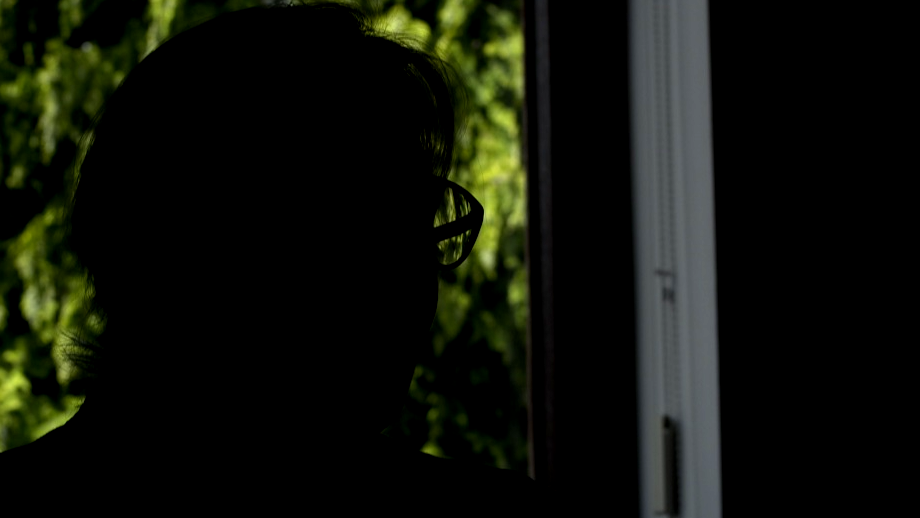
Tania was a victim of modern slavery in the UK
- Published
Modern slavery gang masters beat workers "just for fun", one victim has told the BBC.
Tania was part of a crew of agricultural workers ferried across farms in England. She says they were paid 30p per day, forced to sleep in shipping containers and beaten if they spoke.
“We became slaves, not allowed to talk, not allowed to cry, only work,” she said.
The testimony comes as figures showed more than 11,700 people contacted the UK’s Modern Slavery and Exploitation Helpline last year, an increase of 19% from 2022.
If you've been affected by the issues in this story, help and support is available via the BBC Action Line
Tania, not her real name, had hoped to move to the UK to pursue her dreams of becoming an archaeologist. She said she secured a visa for a six-month stay, and had been promised work by an agency boss in her home country of Latvia.
But the reality was very different.
“I was no longer human, I was an animal," she said.
After arriving at Victoria bus station in London she said she was met by a man who pushed her into the back of a minibus.
“We eventually stopped in a village. They took my passport and papers and said I owed £10,000 for the journey. I started asking why but with every question they beat me until I stopped asking,” Tania added.
She had become a victim of modern slavery. It's a term that describes when someone is exploited by others, for personal or commercial gain. Whether tricked, coerced, or forced, they lose their freedom.
For years, Tania said she picked crops for up to 20 hours a day, seven days a week, guarded by a gang who inflicted violence on the workforce.
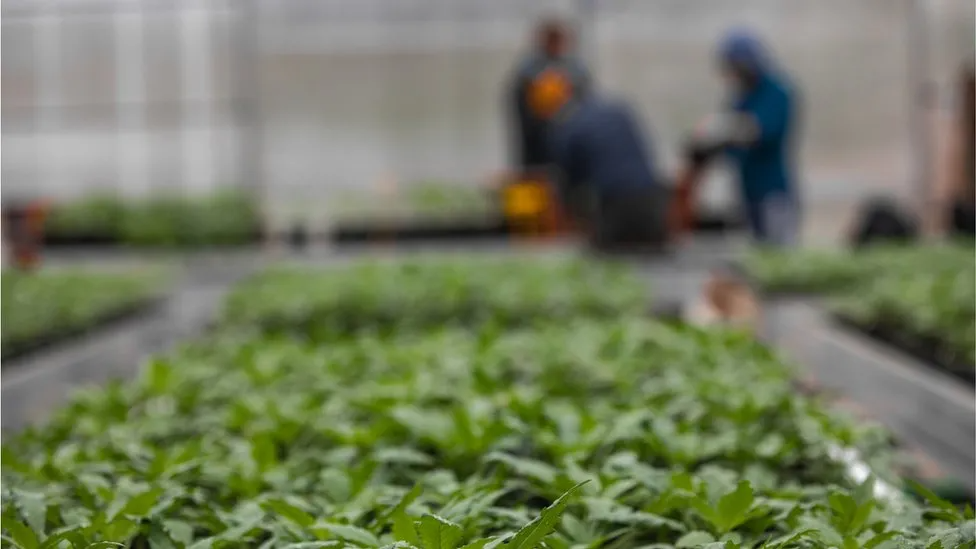
Tania was part of an enslaved crew of agricultural workers
“The gang would sometimes make us drink water from a puddle for a laugh, and when someone complained of toothache, they would use a hammer," Tania said.
“It felt much easier when they beat me because it’s a physical pain and you can hold it, but you cannot hold the moral pain of them beating others because it breaks you.
“I once caught them hitting a 16-year-old boy. I started shouting at them, calling them animals, they put me in the boot of a car. I was very calm in this moment because it was better to be killed then see this anymore.”
Tania came close to death on a number of occasions.
She said people passed the fields every day, but despite many of the workers resembling “skeletons”, nobody alerted the authorities.
The UK’s Modern Slavery and Exploitation Helpline is run by anti-slavery charity Unseen. It is a free, independent and confidential service staffed by trained advisers and operates 24 hours a day, 365 days a year.
As well as supporting victims themselves, the helpline also encourages members of the public to get in touch if they are worried someone might be being exploited.
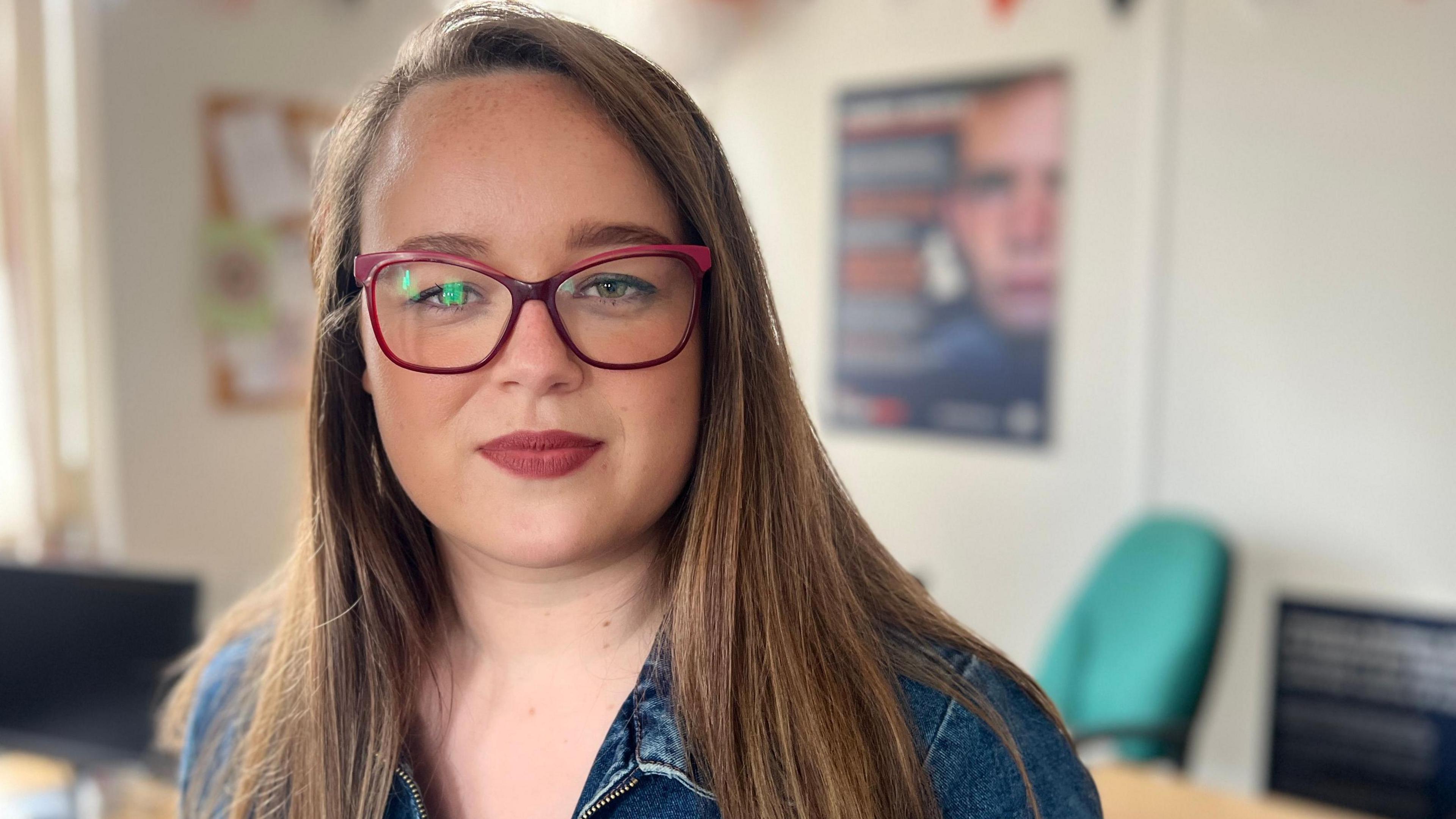
Alice is the manager of the helpline at Unseen
Alice, helpline manager at Unseen, said: “There are a lot of people in the world who want to make money, not through their own work, but through the work of others.
"Unfortunately, it takes a certain type of evil person to do that to another human being and they are getting away with this crime because of the lack of awareness that slavery still exists.
"If we have a greater awareness and can spot the signs, more people will reach out the helpline, we can pass on that information to partners and the police can investigate.
“If anyone isn’t sure what to do, just give us a call.”
Calls to the helpline rose from 9,779 in 2022 to 11,700 in 2023.
The surge in calls coincides with a 30% increase in potential victims identified within the UK adult social care sector, according to Unseen.
What are the signs? Someone in slavery might:
Appear to be under the control of someone else and reluctant to interact with others
Have few personal belongings, wear the same clothes every day or wear unsuitable clothes for work
Not be able to move around freely, and they may not have access to personal identification
Be reluctant to talk to strangers or officials including police officers or health workers
Appear frightened or withdrawn, or show signs of physical or psychological abuse
Be dropped off and collected for work always in the same way, especially at unusual times – very early or late at night
Tania said she was enslaved for a further 15 years until 2017 when she plucked up the courage to escape.
She walked into a Citizens Advice Bureau and handed over a note which read: ”Please help me, I am not legal.”
She was referred to a women’s safe house in the West of England run by Unseen and has been receiving support ever since.
The Salvation Army, which also provides specialist support to adult survivors of modern slavery, is continuing to see an increase in the number of people using its services.
Last year 3,533 people were rescued and supported in safe houses and outreach services run by the Salvation Army. This is a 5% increase on the previous year.
The BBC was given rare access to one of their women's safe houses in the West of England.
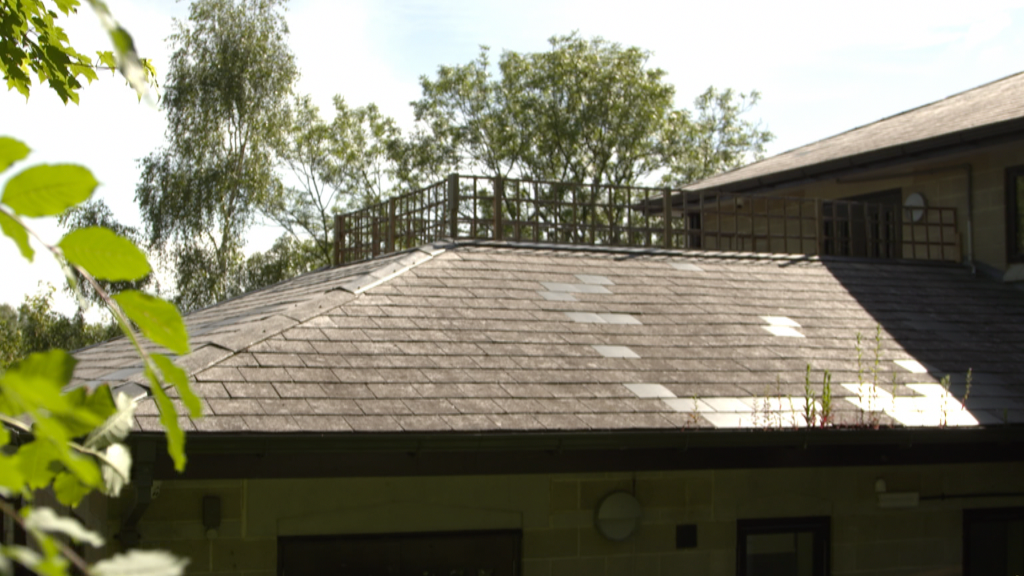
This safehouse is home to more than 30 survivors of modern slavery
The BBC spoke to Maria, whose name we have changed, who is now aged in her 50s. She lives in the safe house after being a victim of sexual exploitation.
She had fled Southern Africa as a teenager to escape abuse at home.
“This couple from the UK offered to take me in, provide me with accommodation, an education, and a good job,” Maria said.
“I was promised a good life and that is what I thought I was going to get.”
After arriving at the couple’s home, the reality quickly set in.
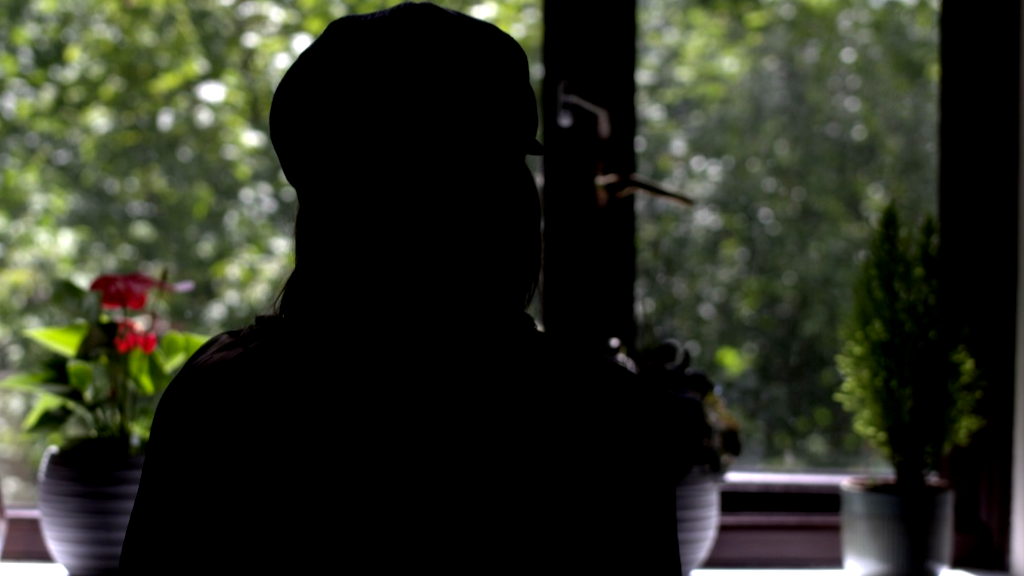
Maria is a survivor of sexual exploitation
She said she was taken to the homes of local people and forced to have sex with them.
“In order for me to survive, I had to detach myself from my body, I don’t know how I did it or when it happened, but it was as though I was living up on a cloud watching someone else live my life," Maria said.
“I was hurting so much, I thought that my heart would physically explode, so I couldn’t take it anymore, so I detached myself. I didn’t feel anything.”
The exploitation went on for more than 30 years.
Maria said she escaped her exploiter after being put in contact with the Salvation Army who offered her a place at one of their safe houses.
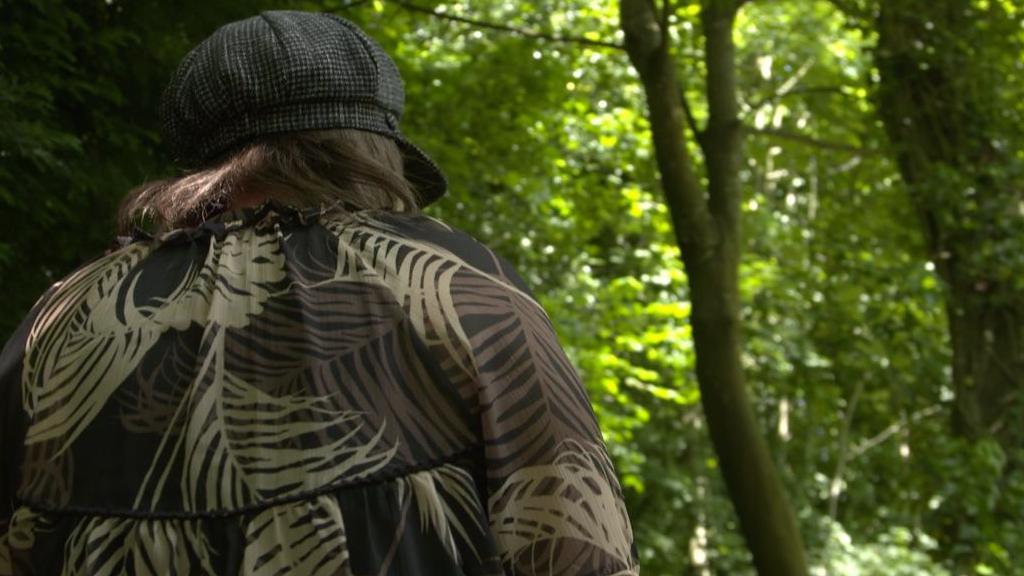
Maria is being supported at a safe house in the West of England
“When I first came here, I was waiting for something bad to happen, I used to wedge my bed against the door every night because I thought someone was going to come in and do something to me,” said Maria.
“I slowly began to realise the staff were normal, nice people.”
Maria was given safe accommodation, access to healthcare, counselling, and education while being given the opportunity to build friendships and take part in volunteering in the local community.
“My life has been saved, I went from being an empty shell of a person, to suddenly feeling things, an emotion I hadn’t felt for decades," she said.
“The safe house has given me the freedom to be the person I want to be."
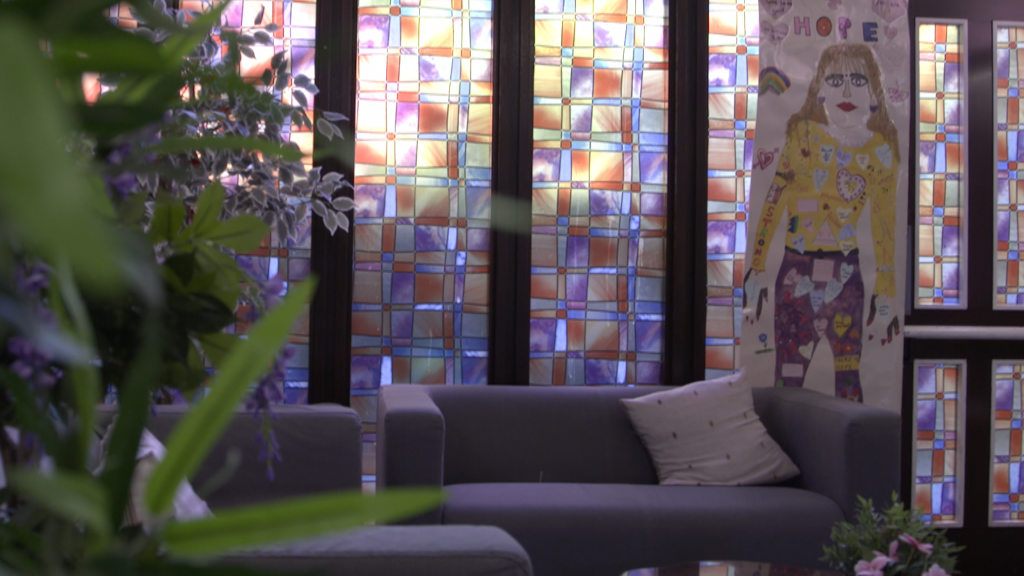
There are dozens of safe houses across the UK run by anti-slavery charities
Both Maria and Tania are on the path to recovery, but they want more people to be aware of the signs of slavery and to report anything suspicious.
Tania said: “The safe house has shown me life, you're not dead, you're not crazy, you are normal, you can feel it, you can make it.
“It was a second start in my heart. I may have a difficult past but I am a human."
Tania, who has now been granted the right to work in the UK, wishes her escape had come sooner.
"Every day, normal English people passed us slaves on the field, driving by car, or just walking through,” she said.
“Please next time you see someone in this position, please call the helpline, if someone had done that, they could of bought me years of my life back."
You can call the UK Modern Slavery & Exploitation helpline on 08000 121 700 or file a report online here., external